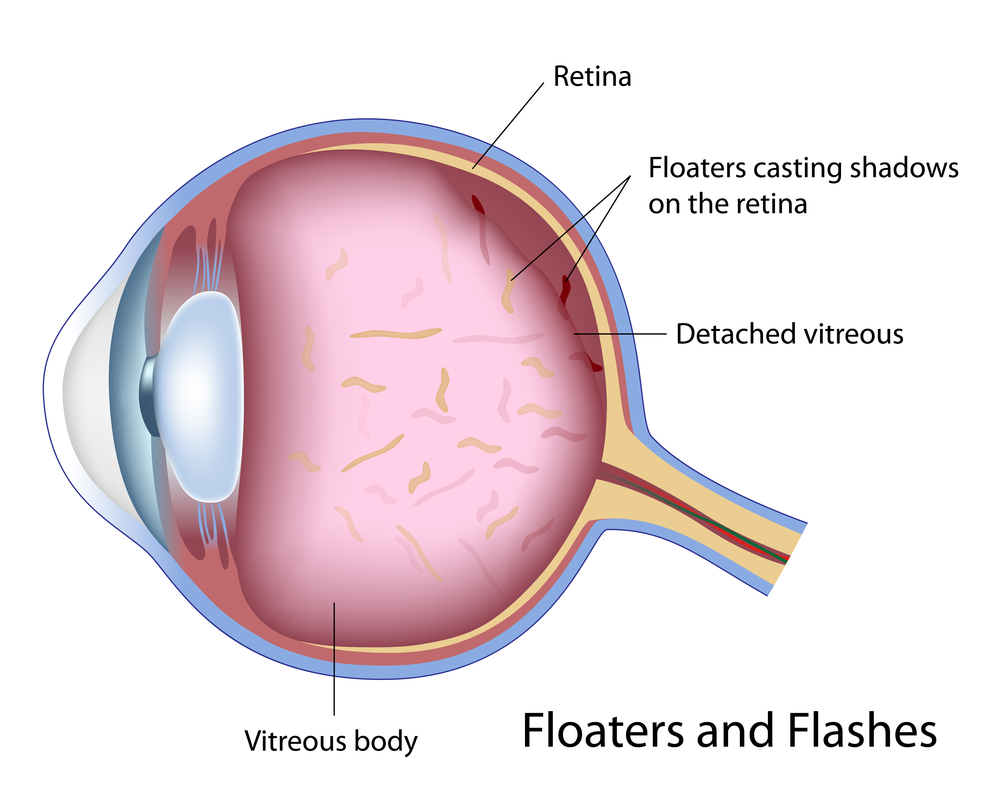All About Eye Floaters And How To Get Rid Of Them
Ever came across the term “eye floaters?” In case you haven’t, you will find this article quite helpful, as it discusses eye floaters, what causes eye floaters, and their treatment and cure in detail.
What are eye floaters?
- Eye floaters are spots that float in the field of vision.
- They may look like black or grey strings, specks, or cobwebs.

What causes eye floaters?
The following can be the causes of eye floaters:
- Age-related eye changes : One of the causes of eye floaters is the change in the eyes caused by aging. The vitreous, a jelly-like substance inside the eyeball, changes as you age. It partially liquefies, which pulls vitreous away from the interior surface of the eyeball. Also, it shrinks and sags, which makes it clumpy and stringy. When light passes through the eye, the debris blocks some of the light, forming tiny shadows, which are seen as floaters.
- Inflammation in the eye : One of the common eye floaters – causes is an inflammation in the back of the eye. The condition releases inflammatory debris into the vitreous, which are seen as floaters in the eye.
- Torn retina : A sagging vitreous sometimes tugs on the retina with enough force to tear it. This causes retinal tears, which in turn, can lead to retinal detachment (accumulation of fluid behind the retina that separates it from the back of the eye). If retinal detachment isn’t addressed appropriately or on time, it can cause permanent vision loss.
- Bleeding in the eye : There are several causal factors of bleeding in the eye, including diabetes, injury, hypertension, and blocked blood vessels. Blood cells due to bleeding are seen as eye floaters.
- Eye surgeries and medications : Eye surgery or medications is one of the common eye floaters – causes. Air bubbles sometimes form in the eye after a surgery, which are later seen as shadows in the eye or as eye floaters.
- Nearsightedness : Those who have nearsightedness are more susceptible to eye floaters.
What are the factors that can increase your risk of eye floaters?
- Age over 50 years
- Eye trauma
- Nearsightedness
- Complications after cataract surgery
- Eye inflammation
- Diabetic retinopathy
Should you be concerned about eye floaters?
Eye floaters aren’t a big deal most of the times. However, you must seek the doctor’s help in the following cases:
- When the floaters don’t go away
- You notice a sudden increase in the floaters
- You see flashes of light along with the floaters
- If there is a shadow or curtain in your side vision
- Your eyes hurt
- You have trouble seeing
What eye diseases are associated with eye floaters?
- Cataract
- Nearsightedness
- Retinal detachment
- Retinal necrosis
What can you do to get rid of them?
The ways to get rid of eye floaters or their treatments depend on the underlying eye floaters – causes. Depending on your specific cause and condition, you can count on some of the following ways:
- Ignore them : This is the best thing you can do if your eye floaters are not a nuisance. You can ignore them, and they will fade away on their own.
- Vitrectomy : If they are interfering with your vision or are causing discomfort, you can get the eye floaters removed through this invasive surgery.
- Treat the underlying condition : You can get rid of the eye floaters by treating their underlying cause.
- Anti-inflammatory diet : This diet can prevent eye floaters caused by inflammation in the eyes.











